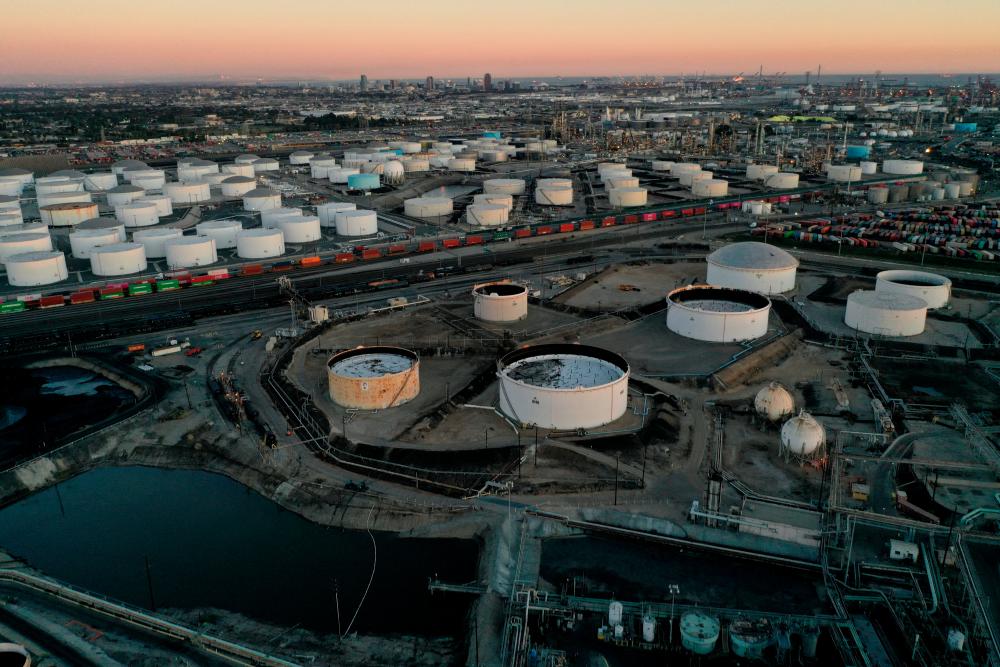NEW YORK: Oil prices rose about 1% on Thursday (Oct 6), holding at three-week highs after Opec+ agreed to tighten global supply with a deal to cut production targets by 2 million barrels per day (bpd), the producers' largest reduction since 2020.
Brent crude futures settled at US$94.42 (RM437.87) a barrel, up US$1.05, or 1.1%. US West Texas Intermediate (WTI) crude futures settled at US$88.45 (RM410.18) a barrel, gaining 69 cents, or 0.8% after closing 1.4% up on Wednesday.
The agreement between the Organization of Petroleum Exporting Countries and allies including Russia, a group known as Opec+, comes ahead of a European Union embargo on Russian oil and would squeeze supplies in an already tight market, adding to inflation.
“We believe that the price impact of the announced measures will be significant,” said Jorge Leon, senior vice president at Rystad Energy. “By December this year, Brent would reach over US$100/bbl, up from our earlier call for US$89.”
Following the Opec+ decision, Goldman Sachs raised its 2022 Brent forecast to US$104 per barrel from US$99, and its 2023 forecast to US$110 from US$108.
Saudi Energy Minister Abdulaziz bin Salman said the real supply cut would be about 1 million to 1.1 million bpd. Saudi Arabia's share of the cut is about 500,000 bpd.
Iraq oil minister Ihsan Abdul Jabbar told Kuwait news agency the Opec+ move came as result of a production surplus.
Several Opec+ members have been struggling to produce at quota levels because of underinvestment and sanctions.
“Maybe Saudi Arabia, the UAE, Kuwait, and the ‘little train that could’ Kazakhstan may cut production to new quota, but I doubt anybody else will,” said Bob Yawger, director of energy futures at Mizuho in New York.
The output cut comes as the US Federal Reserve and other central banks are raising interest rates to fight inflation. Higher oil prices will likely cut demand, which could cap price gains, said John Kilduff, partner at Again Capital LLC in New York.
“That’s what’s cutting back the other way and why prices have stabilised for WTI just under US$90,” Kilduff said.
US President Joe Biden expressed disappointment over Opec+ plans and said the United States was looking at ways to keep prices from rising.
“There’s a lot of alternatives. We haven’t made up our minds yet,” he told reporters at the White House.
Earlier, the White House said Biden would continue to assess whether to release more supplies from the Strategic Petroleum Reserve and would consult Congress on other ways to reduce market control of Opec and its allies. – Reuters















